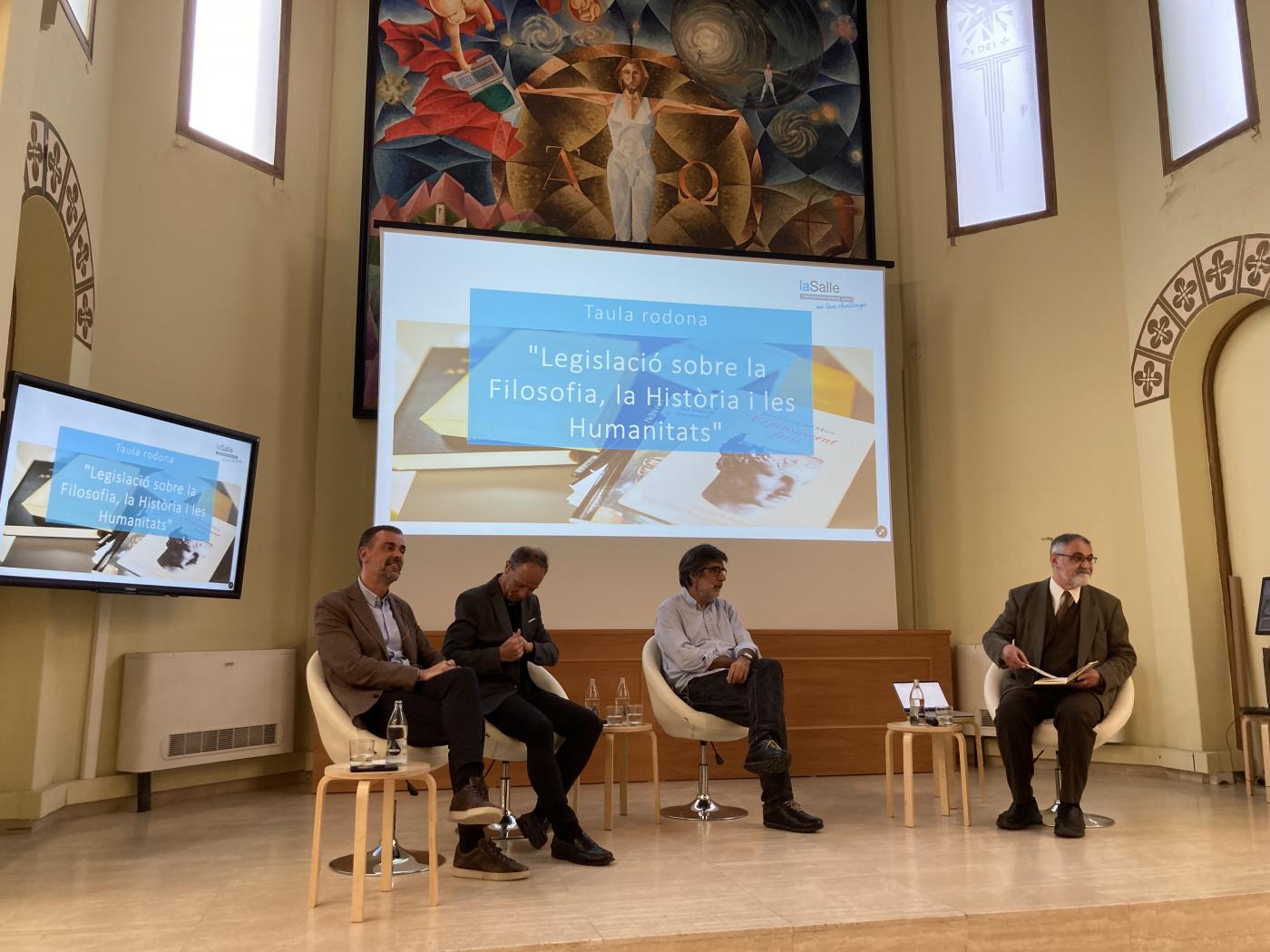Recently, Lomloe, the new Spanish educational law, was approved, which will introduce substantial changes in the ESO educational curriculum and, pending what each autonomous community decides, modifies the presence of philosophy in secondary and Baccalaureate. This subject, of current controversy, served as the guiding thread for the round table 'Legislation on Philosophy, History and the Humanities' in which three of the current referents of thought in Catalonia participated: Santi Vila, professor at La Salle-URL; Francesc Torralba, professor of Philosophy at the URL; and Joan García del Muro, professor of Philosophy at the Institut Obert de Catalunya and professor at the URL.
“There is a series of anti-philosophical prejudices that are reflected in this law”, lamented Joan García del Muro, who spoke of Lomloe as a “contradictory” law. Francesc Torralba, for his part, denounced "educational utilitarianism" and advocated "amending the whole" and explaining the virtues and benefits of the subject beyond its immediate usefulness: "Widen the mind, reflect on deep questions, undoes prejudices, helps to orient oneself and to develop a wise life”. In this sense, Santi Vila agreed that “education is being made into something simply instrumental” and that this “places the subject of philosophy in the abyss”.
The session served to vindicate the discipline as a key element for today's society, to understand and question it. "Philosophy is characterized by the depth of its questions, and that is why it is countercultural," said Torralba, who also pointed out the importance of rethinking how the philosopher can contribute "to institutions, to hospitals, to the educational world." Along these same lines, Vila acknowledged that "there are some abusive generalizations that confuse Philosophy with feeding the critical spirit" and pointed out that precisely one of the challenges of philosophers is "getting out of these discrediting topics". All three agreed that nurturing the critical spirit is something that has to be common in all subjects, because, as Vila said: "This does not have to be distinctive or exclusive to philosophy."
The role of technology, and the need to reflect on its implications, also featured in part of the debate. “Philosophy can contribute a lot in the face of this vertiginous technological development, in the face of these accelerated changes. A reflection on the consequences for people is needed”, claimed Torralba. On technology and teaching, Santi Vila spoke of the mobile “as an extension” of students and referred to the importance of being demanding with them in order to “awaken vocations”. The final part of the session also discussed how to bring Philosophy closer to young people, the role of the teacher in the current educational system, the role of the university and the function of philosophers in 21st century society.
The round table was held in the Aula Magna of La Salle Campus Barcelona-URL, and was co-organized by the Faculty of Philosophy of the URL, which from the next academic year will be integrated into the educational and knowledge ecosystem of La Salle-URL, reinforcing its transversal and humanistic character. The dean of the Faculty of Philosophy of the URL, Carles Llinàs, was in charge of introducing and moderating the round table.
